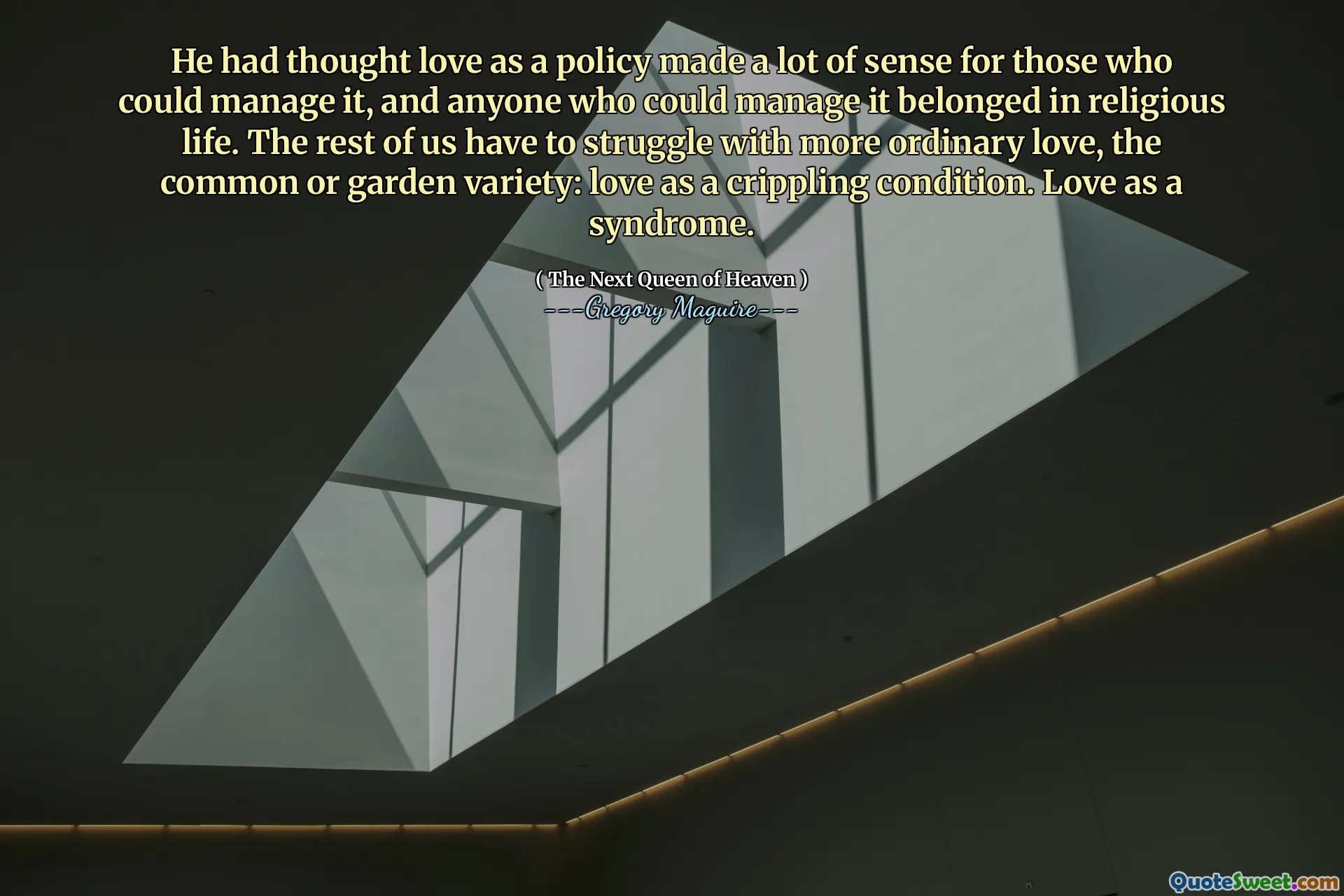
He had thought love as a policy made a lot of sense for those who could manage it, and anyone who could manage it belonged in religious life. The rest of us have to struggle with more ordinary love, the common or garden variety: love as a crippling condition. Love as a syndrome.
This excerpt from The Next Queen of Heaven by Gregory Maguire poignantly explores the dichotomy between an idealized, almost strategic approach to love and the raw, tumultuous reality experienced by most. It suggests a division between those who embody a controlled, perhaps sanctified version of love—those who could 'manage it' within the confines of religious life—and the majority who wrestle with love as a vulnerable, often overwhelming force. By framing love as a "crippling condition" and a "syndrome," the quote underscores the complexity and the often painful emotional entanglement we endure in human relationships. This portrayal moves beyond romanticized love to expose its darker, more challenging facets.
What stands out is the nuanced reflection on love’s dual nature: as both a disciplined, almost sacred pursuit, and a relentless, sometimes debilitating experience. In religious life, love may be idealized, purified, or controlled, while ordinary life often presents love as fraught with struggle, limitation, and imperfection. This resonates deeply because it acknowledges that love is not simply a source of joy or fulfillment but can also bring suffering and conflict.
Ultimately, the quote reveals an insightful, somewhat somber meditation on the human condition. It calls attention to the universal struggle of reconciling love's potential for both transcendence and pain—a theme that resonates profoundly with anyone who has experienced love’s complexities.






